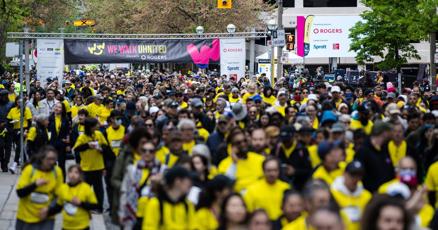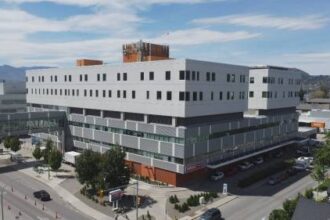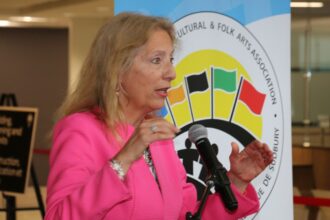In a remarkable display of community solidarity, thousands of Torontonians gathered this weekend for the inaugural University Health Network (UHN) Fundraising Walk, transforming the city’s streets into corridors of gratitude and hope. The event, which drew participants from across the Greater Toronto Area, marked UHN’s first large-scale walkathon fundraiser, creating a powerful visual testament to the vital relationship between healthcare providers and the communities they serve.
“This isn’t just another charity walk—it’s an opportunity for patients and families to say thank you,” explained Dr. Kevin Smith, UHN President and CEO, as crowds assembled at the starting point. “Many participants are walking alongside the very healthcare teams who saved their lives or the lives of their loved ones. That creates a profoundly meaningful connection you don’t often see in fundraising events.”
The walk route strategically connected UHN’s four major hospitals—Toronto General, Toronto Western, Princess Margaret, and Toronto Rehabilitation Institute—symbolically highlighting the network’s comprehensive approach to healthcare across the city. Participants followed paths that many have traveled during personal health journeys, creating an emotional resonance that transcended the typical fundraising experience.
What distinguishes this initiative from other charitable events is its deeply personal nature. Numerous participants shared stories of transformative care received at UHN facilities, with many walking alongside the very medical professionals who treated them. Sarah Johannson, a cancer survivor who received treatment at Princess Margaret Hospital, walked with her oncologist Dr. Maria Chen, exemplifying the unique bonds formed through the healthcare experience.
“When I was diagnosed three years ago, I never imagined I’d be here today, let alone walking five kilometers with the doctor who guided me through the darkest time of my life,” Johannson shared. “This walk isn’t just about raising money—it’s about celebrating second chances.”
Financial contributions from the event will support UHN’s ambitious healthcare innovation initiatives, including advanced medical research, technology acquisition, and enhanced patient care programs. According to CO24 News, preliminary figures indicate the walk has already surpassed its initial fundraising target of $1.2 million, demonstrating the community’s robust commitment to supporting healthcare excellence.
Beyond the immediate financial benefits, the event cultivated a powerful sense of connection between healthcare providers and recipients. Medical professionals from across UHN’s network participated not in their clinical roles but as community members, highlighting the human dimension of healthcare that extends beyond hospital walls. This perspective was particularly resonant in post-pandemic Toronto, where healthcare workers continue to navigate unprecedented challenges.
“After years of seeing healthcare professionals primarily through the lens of COVID-19 response, this event offers a chance to celebrate their broader contributions to community wellbeing,” noted Councilor Ana Bailão, who attended the event. “It reminds us that healthcare is fundamentally about people caring for people.”
The walk’s success signals a potential shift in healthcare philanthropy approaches in Canada, moving toward models that emphasize community participation and personal connection. UHN officials have already confirmed plans to make the walk an annual event, with hopes to expand participation and impact in subsequent years.
For Toronto’s healthcare community, still recovering from the strain of pandemic operations, the visible public support represented a meaningful acknowledgment of their continued dedication. Dr. Emily Nguyen, a respirologist at Toronto Western Hospital, expressed how meaningful the community’s presence felt to frontline workers.
“To see so many people come out explicitly to support healthcare—not just with donations but with their physical presence—is incredibly validating for those of us who have been working through extremely challenging conditions,” Dr. Nguyen said. “It reminds us why we do what we do.”
As healthcare systems across Canada grapple with resource constraints and increasing demands, community-driven fundraising initiatives may play an increasingly vital role in sustaining quality care. The question that remains for policymakers and citizens alike is: how can we better harness this demonstrated community commitment to ensure our healthcare institutions remain resilient and responsive to evolving needs?










